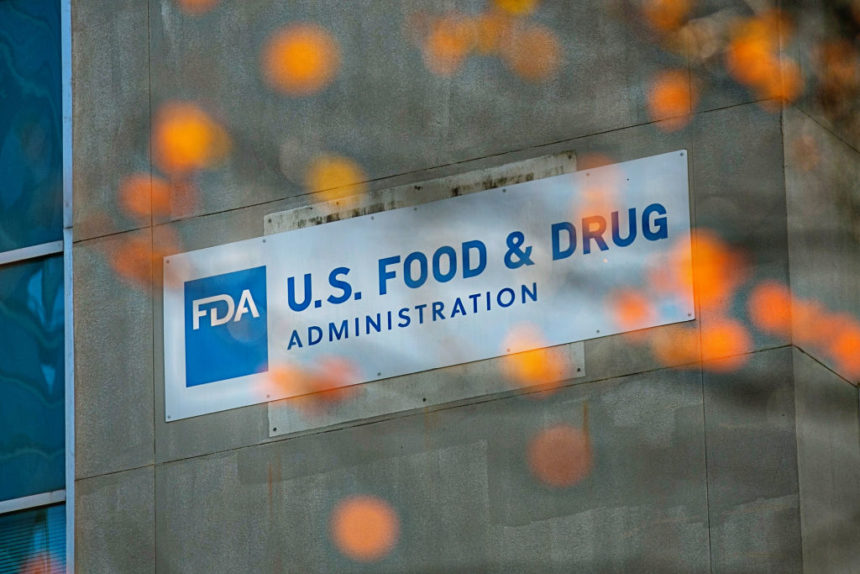Daiichi Sankyo and AstraZeneca’s antibody drug conjugate (ADC) Enhertu has been racking up label expansions and its latest opportunity could prove the most versatile yet.
The Food and Drug Administration granted the drug priority review for treating adults with unresectable or metastatic HER2 positive solid tumors, regardless of where the cancer started in the body. This action follows a breakthrough therapy designation for that indication awarded last August.
“If approved, Enhertu could become the first HER2-directed therapy and [ADC] with a tumor-agnostic indication,” noted Ken Takeshita, Daiichi Sankyo’s global research and development head, in a joint announcement issued by the firms Monday.
The FDA pledged to give its yay or nay on the supplemental biologics license application (sBLA) by May 30. Supporting the application are results from the ongoing DESTINY-PanTumor02 Phase 2 trial showing clinically meaningful and durable responses.
Per the findings, Enhertu (trastuzumab deruxtecan) was associated with a significant survival benefit for subjects with advanced HER2-expressing solid tumors, including biliary tract, bladder, cervical, endometrial, ovarian, pancreatic or other cancers.
In these tumors, HER2-positive expression, classified as “IHC 3+,” has been observed at rates from 1% to 28%, according to published prevalence figures cited by Daiichi Sankyo and AstraZeneca. Also included with the submission were data from the DESTINY-Lung01 and DESTINY-CRC02 trials, which involved subjects with HER2-positive IHC 3+ tumors.
The drug is meant for those who have received prior treatment or who have no satisfactory alternative treatment options. Nevertheless, Enhertu’s Q3 2023 global sales hit $675 million, marking a 2% bump versus Q2 2023. Additionally, its worldwide sales are projected to top $10.7 billion by 2029, according to a forecast by GlobalData.
Recent milestones show the drug’s clinical development program is on the way toward realizing that potential.
In October, the E.U. awarded Enhertu an approval to treat advanced non-small cell lung cancer (NSCLC) patients with a HER2 mutation, building on a prior European approval for HER2-positive gastroesophageal junction adenocarcinoma.
In addition, expected in the first half of this year in the U.S. is a trial readout from the DESTINY-Breast06 trial that may enable Daiichi Sankyo and AstraZeneca to expand Enhertu’s label into the HR+/HER2 “ultra low” population — i.e., IHC 0, 1, 2.
All of which would add to the intravenous drug’s other FDA approvals. Those include treating patients with breast cancer, either HER2-positive or HER2-low, as well as an accelerated approval for unresectable or metastatic NSCLC whose tumors have activating HER2 (ERBB2) mutations.
The two drugmakers also partner on the TROP2-directed ADC datopotamab deruxtecan (Dato-DXd). If approved, Dato-DXd would go up against Gilead’s TROP2 ADC — Trodelvy — in the HR+ HER2-negative breast cancer space.
Daiichi Sankyo’s oncology portfolio includes several other ADCs in various states of development, three of which were picked up by Merck in the fall for $5.5 billion upfront and $16.5 billion in potential milestones.
Merck’s move not only built on its existing collaboration with Kelun Biotech focused on a series of ADC assets. It also kicked off a slew of activity by other pharma players to get in on the ADC space.
AbbVie acquired ADC manufacturer ImmunoGen for $10.1 billion in November. The following month saw GSK license HS-20093, an ADC being investigated in cancer, from China-based Hansoh Pharma in a December deal worth up to $1.7 billion. Bristol Myers Squibb also picked up SystImmune’s BL-B01D1, an ADC which targets metastatic or unresectable NSCLS, in a deal worth up to $8.4 billion.
This month, J&J plunked down $2 billion for ADC developer Ambrx Biopharma and its proprietary synthetic biology technology platform. Last spring, BioNTech also delved into a $170 million deal with DualityBio for two of its ADC candidates.
Not to mention, the largest M&A deal of 2023 was Pfizer’s $43 billion acquisition of Seagen, marketer of several ADCs, initially announced in March 2022.







